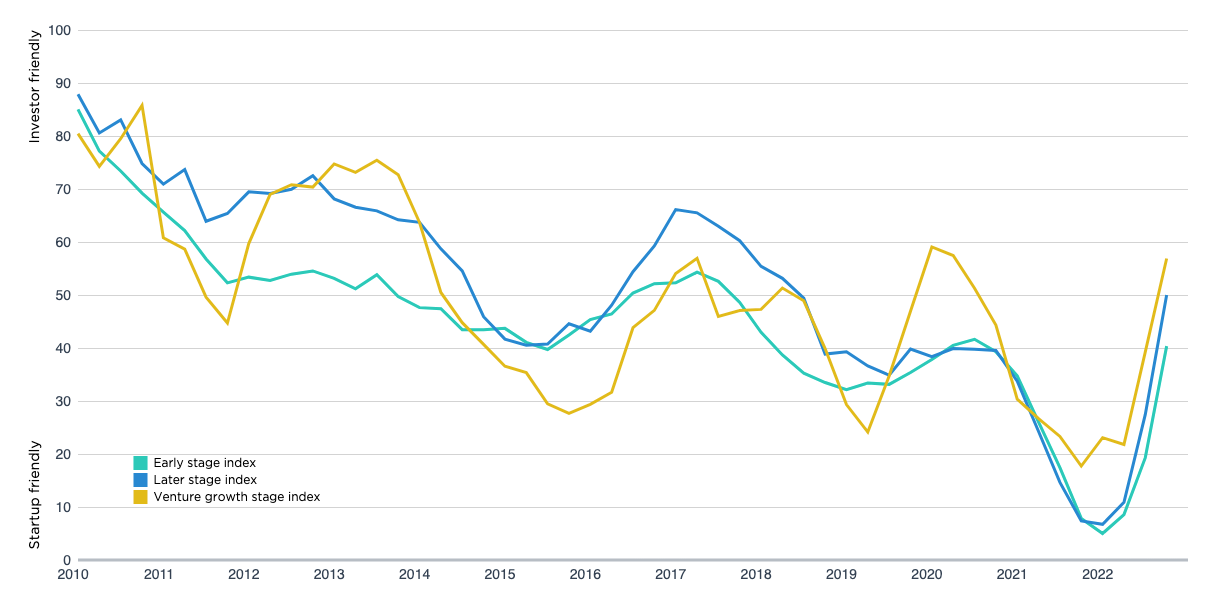10 Predictions for 2023: No. 6 - Boards Strike Back
Investors in private companies, notably startups, will take more board seats and take them earlier
(I’m making 10 predictions for 2023. Find the links to my others at the bottom of this post.👇🏿 )
I recently predicted that this year would dawn a new era of corporate scandal, as an impending recession, a proliferation of under-scrutinized private companies, and a pervasive lack of good corporate governance will uncover more than a decade’s worth of corporate fraud and bad behavior.
But a recession won’t only uncover corporate misdeeds, it will also trigger a rebound in the lax corporate governance environment of the last few years.
That means, in 2023, institutional investors in private companies, notably startups, will take more board seats and take them earlier. The smartest ones, in an effort to build stronger governance, will advocate for having more independent board directors in the board room and at earlier stages.
We’ll also see this happen at the smaller end of the growth-stage private equity market, where investors will require more governance controls and bring more industry or functional experts as independent board directors into the boardroom.
Data on the percentage of private company independent directors is mixed. A 2021 survey from Him for Her, Crunchbase, and Kellogg School of Management found that 29% of private company directors are independent. However, a 2021 survey from the National Association of Corporate Directors (NACD) found that 51% of private company directors were independent. The NACD number is too high, in my estimation. Yet, in both surveys, the percentage jumped substantially from 2020 to 2021.
I hinted at this coming trend when talking to Fortune about startup governance in the wake of the FTX collapse:
Jamaal Glenn, a venture capitalist who teaches marketing and public relations at New York University and the City University of New York, views the inclination to work with insiders as all too human. He still pushes startups to appoint independent directors as soon as they’ve raised institutional investments. Instead, chief executives too often build “CEO-fiefdoms” and surround themselves with yes-men, he says.
“Companies should start thinking about boards as soon as they raise their first round of institutional capital, and they should start thinking about independent directors shortly after,” he suggests. Directors can share their expertise to scale the company and apply good corporate governance.
Looking ahead, Glenn doesn’t expect investors will frequently run into CEOs who refuse to appoint independent directors or add VCs to the boardroom. And the economic downturn has made raising capital harder than when Bankman-Fried was making the rounds, meaning investors should be able to leverage their power and insist on more corporate controls.
Although Glenn doesn’t believe regulators should mandate that private boards include independent directors, he would like to see institutional investors and banks band together and nudge private companies to add outsiders to their boardrooms. “Let’s call it marketplace incentivization or coercion,” he says.
Economic downturns make it harder to raise capital and the harder it is, the more the power shifts from those raising capital to those investing it. The last few years of frothy startup markets have put many startups, especially the most coveted, in the driver's seat and able to dictate terms, which means more CEO control. In 2022, things started to shift back.
Pitchbook’s VC dealmaking indicator, which measures the relative leverage that startups have versus investors, shows that the startup environment got decidedly more investor friendly during 2022 and reached levels of investor friendliness that were last seen during the height of the pandemic.
But if the direst economic predictions are correct, the market could reach 2010 levels of investor friendliness, the highest levels seen since the index started tracking.
CEO control isn’t necessarily a bad thing. The founders and CEOs of many startups are visionaries and are oftentimes uniquely capable of bringing a new enterprise into the world. But everyone is fallible, and so even the most talented startup chiefs need a diverse set of voices as part of the decision-making process.
Last year, I wrote that a shift in power from those executives to institutional investors, independent corporate directors, and financial service providers (i.e., banks) could be a good thing:
In my experience as a startup investor and executive, you’re exponentially more likely to find bad corporate governance when founders have too much control.
Research supports this. The more control that founders give up in the form of corporate governance checks and balances, the more valuable the startup becomes.
For each degree of control that a founder retains, the company’s value tends to be 20% lower on average, according to research from Noam Wasserman.
For example:
🚩 When founders control more than 50% of the board 👉🏿 ~20% lower valuation
Wasserman describes this control dilemma to founders as “you can be rich, or you can be king/queen.”
The absolute worst governance examples I’ve ever seen almost always happen when there’s no one checking the founder/ceo.
No matter how brilliant, innovative, or [insert adjective] you think that a founder is, there needs to be other influential, decision-making voices in the room.
In 2023, boards strike back.
I’m making 10 Predictions for 2023. Read my others below.




